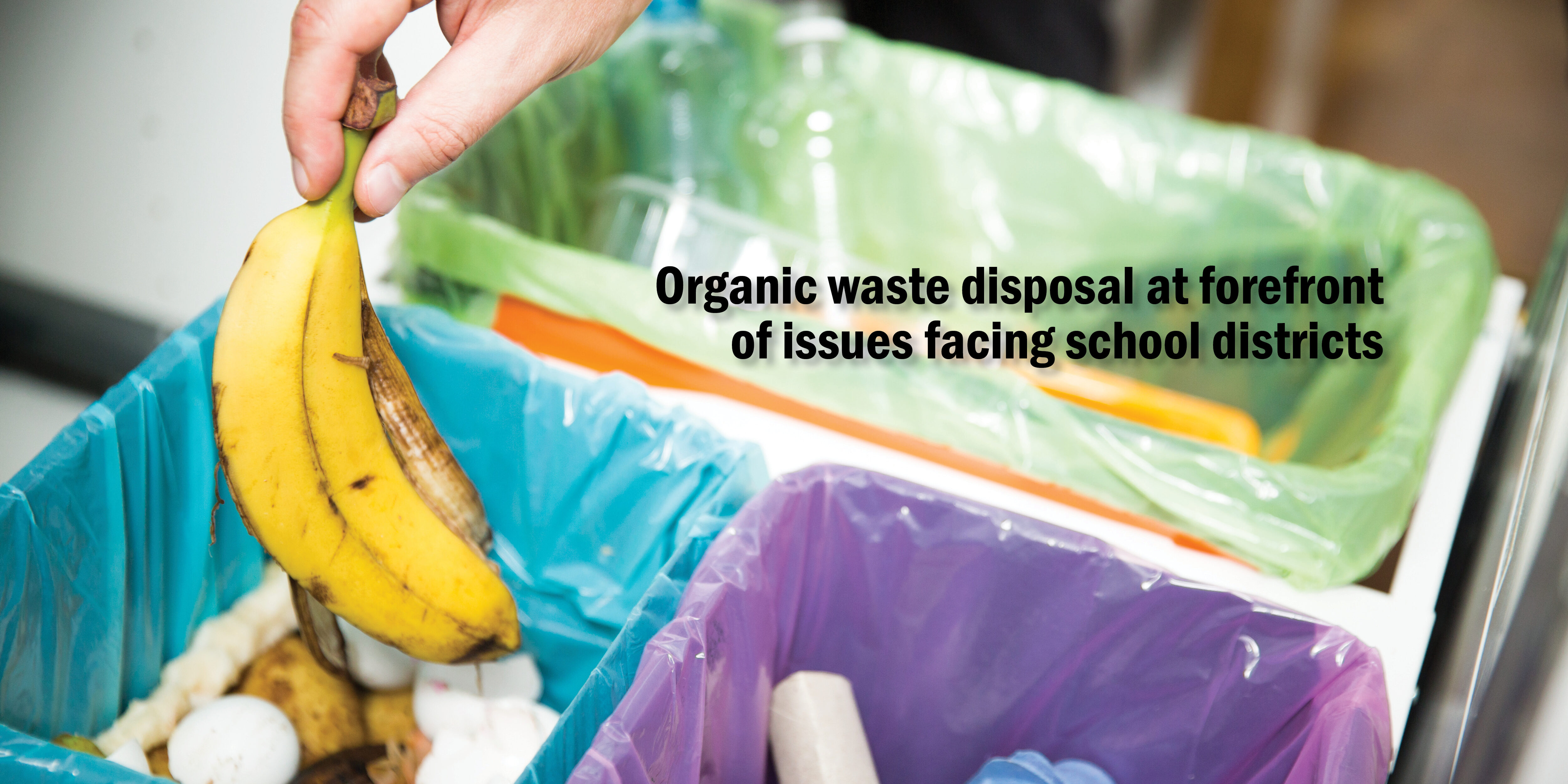Organic waste disposal is now at the forefront of new issues facing school districts and other local governments. Unrecycled organic waste contributes to climate change, methane pollution, and the massive and avoidable food waste problem in America. According to some estimates, the U.S. sends 40 percent of the food it creates to landfills. New regulations are cropping up in many states to curb this issue.
For example, in 2016, the governor of California signed Senate Bill 1383 into law to reduce organic waste disposal by 75 percent by 2025, among other objectives. The law is now catching up with cities and school districts as they strive to meet regulations and avoid heavy penalties for non-compliance.
What’s more, CalRecycle’s regulations to meet the organic waste reduction targets took effect on the first day of 2022. Now, small indoor containers for organics and recycling must accompany garbage containers wherever they’re present, except for restrooms. All indoor and outdoor disposal containers must also conform to a color scheme: gray/black for landfill, blue for recycling, and green for organics.
A growing number of other states are also joining the movement to reduce waste by passing new legislation. These include New York, New Jersey, Connecticut, Rhode Island, Vermont, and Massachusetts.
How AEPA Is Helping Schools Meet These Requirements
Fortunately, AEPA has a competitively bid contract with Busch Systems to help municipalities and school districts meet these requirements. Busch Systems offers a broad range of bin solutions to collect food waste, recycling, and trash from schools and other locations.
It also offers a repository of knowledge about waste recovery and related topics. For example, the company has two on-demand webinars available for schools to learn about K-12 recycling and food waste recovery. Both presentations feature school and recycling waste industry experts discussing local case studies and best practices to recover food waste and other materials from schools.
Common Hurdles New Waste Management Laws Create for Schools
Together, AEPA and Busch Systems help schools understand and overcome common challenges in the transition to better waste recovery.
1. Budget
Proper waste management costs money, and schools will have to acquire the capital to sustain tasks such as food scraps collection, donating unserved edible food to charities, purchasing bins, and finding related equipment. Waste management will also potentially require new personnel and job descriptions because fulfilling these regulations can require internal custodial staff resources, supervision, monitoring, reporting, and outside contractors such as waste hauling providers.
Some larger districts may choose to fund additional sustainability or facilities staff to manage the implementation of new food waste collection programs. In all cases, school districts need to be prepared for the budgetary reality that these regulations impose and plan accordingly.
2. Technical Knowledge
Most school districts do not yet have the know-how to carry out new regulations successfully, and collecting a significant percentage of clean food waste is not easy. Imparting technical knowledge includes retraining students and staff to know how to separate food. Equally important, students and staff must learn how to use the new containers and other features appropriately because there can be penalties to the agency for not following legal procedures.
In many cases, schools will surmount this challenge by retaining consulting firms to develop and roll out new systems. That consulting service may include educational outreach or assistance in hiring dedicated staff who are experts in these regulations.
3. Compatibility With Cafeteria Operations
Cafeteria management always has its day-to-day challenges, but now the job will be even more difficult. It’s a question of facilitating change, fostering new habits, and even implementing new procedures. For example, if meals are produced on-site, the network of collection bins needs to extend to the prep and dining areas. Then, where are bins emptied? How are odors addressed? What’s the collection schedule?
How food is packaged or plated is also a new challenge. For instance, food served on non-compostable single-use trays can be difficult to collect without that packaging becoming a contaminant in collection bins. Some school districts have taken to replacing single-use condiment packets with bulk dispensers to reduce food waste.
A Bright but Challenging Future for Waste Management
Reducing waste and landfill content is an earth-friendly goal in which students and teaching staff can effectively participate, but the challenges are new and confusing. Much planning and decision-making lies ahead in budgeting, addressing specific procedures and technical knowledge, and making food services compliant.
AEPA has anticipated new district needs for schools that will be part of this movement. Along with Busch Systems, AEPA’s purchasing contracts can help chief business officials, nutrition directors, and custodial staff make this important transition. Together, schools and vendor communities can move waste management into a 21st-century approach — a win for all stakeholders.








